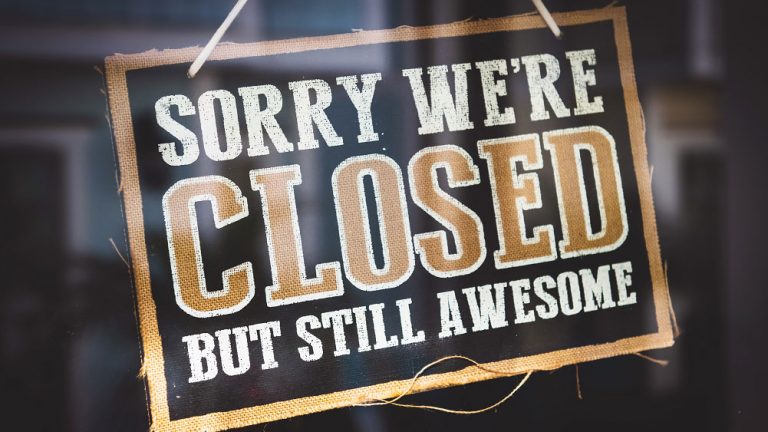Maybe you’re seriously, considering shutting down your business. But there’s more to closing down a business, even a small business, than just putting up a physical or digital “Closed” sign and walking away.
Here’s an important checklist for closing down a business with 12 must-have steps.
1. Take time to think about your decision.
Now is the time to step back and honestly think about how your business is doing and how you feel about running a business. There are some things to consider during your decision about closing down your business.
No business, not even the ones that look cool, is fun 100 percent of the time. But there should be at least some fun parts of having your own business.
If that’s no longer true for you, then quitting is probably a good decision.
2. Prepare for closing down a business.
This is where the real work begins. Closing down a business can be overwhelming. Look for help, preferably from a professional, such as an accountant, lawyer or other business professionals who are relatives or friends of your family.
You should also check out the Small Business Administration (SBA) website. The SBA’s Steps to Closing a Business article guides you through important steps such as how to file certain documents, how to cancel business names, and how to handle your finances.
3. Talk to all of your business’ other decision-makers.
This is a simple thing to do on your checklist for closing down a business if you’re a solopreneur. But if you have business partners and/or investors, closing the business needs to be a group decision. Talk to partners and investors about your decision. The group then needs to agree on an overall plan for closing the business.
4. Consider late-paying customers.
Do you have customers who are running late on payments to you? Consider some possible choices for missed payments, including:
- Offering discounts for immediate payments.
- Cutting your losses. This means deciding that if a customer hasn’t been paid you by now, they never will.
5. Reach out to your other customers and start closing accounts.
Let your regular customers know you’re closing down your business. Do this with any email subscribers and social media sites you use for your business. You can also call or text customers, if certain customers are used to getting texts or speaking on the phone with you.
Start closing accounts after reaching out to customers.
6. File dissolution documents.
If your business is registered as an LLC or corporation, file for dissolution in the state where you registered the business. Skip this step and you might have to pay for continued taxes and business debts.
The rules for filing a Certificate of Dissolution are different from state to state. So, check your state’s rules to be sure. It’s also a good idea to talk with an accountant, lawyer or other business professional about dissolution requirements.
In general, sole proprietors do not have to file anything with the state.
7. Know your tax requirements.
It depends on your business, but at the very least you’ll probably have to:
- Submit your final income and sales tax to the state and federal government
- Cancel your Employer Identification Number (EIN)
- Report the sale of any business assets.
To make sure you don’t overlook a step, review this IRS checklist. The IRS website’s Closing a Business section is another good information source. This section of the IRS site can help meet all tax requirements for closing down a business.
8. Cancel business licenses and permits.
You need to cancel with any agency that gave you a type of license, registration, or permit. The steps for doing so will depend on the agency. This will prevent someone else from using your business name or account — which can hurt your reputation and could leave you responsible for various taxes and penalties.
9. Pay your debts.
Make arrangements to pay any debts when closing down a business. This list of payments should include what you owe to lenders, suppliers and vendors who provided services and/or products for your business.
You can also think about liquidating your business assets. This is a good way to turn things like office equipment, tools, furniture and sometimes even customer lists into cash that can be used to repay your debts.
Check out the Small Business Administration’s site to learn more about how to liquidate your business’ assets when closing down a business.
If you have paid state and federal taxes, and also settled your debts, then you can use your business’ remaining assets for yourself. If your business has partners and other owners, you could also give those assets to them.
After that, you should close down your business bank account and cancel any business-related credit cards, if you have them.
10. Keep records.
Keep track of all your important records, including tax and employment information, for three to seven years after closing down a business. Some records, like your articles of incorporation, should be kept on file permanently.
11. Give yourself a break.
There are a lot of things to do when you’re closing down a business. So, the loss of your business may not hit you until everything is done.
This can happen even if you’re closing down a business and looking forward to having more time to focus on creating a new business, or some other new project or stage of life. Some people, including those who have gone through closing down a business, compare the emotional process of ending a business to the common five stages of grief: denial, anger, bargaining, depression and acceptance.
You may also deal with blaming others and/or yourself for your business coming to an end. Take some time to grieve if you need it. Reach out to any family members and friends you trust to support and encourage you.
12. Learn and move forward.
When you feel more capable of coping with your small business closing, you’re ready to start again. Where you go from here is up to you. For example, you could:
- Start another business
- Intern or work for a traditional company
- Join an existing start-up business
- Take time to focus on your current activities (school, hobbies, etc.)
Whatever you decide to do next, think about what you’ve learned from running your own business and take those lessons with you as you move forward.
Final Thoughts on A Checklist for Closing Down a Business
It’s hard to say goodbye to something that’s been a big part of your life, such as running your own business. That’s why it’s important to have a checklist for closing down a business.
Having a plan helps you move through the steps you need to take for closing down a business the right way. This also helps you and the people who supported your business feel better about the process.
Take the time to go through the process and be sure to ask for help along the way. You should also be patient with yourself and take time to grieve closing down a business, if you need to do so.
Finally, use this time to learn from your experience as an entrepreneur and discover what you want to do next after closing down a business.
Photo by Markus Spiske on Unsplash





